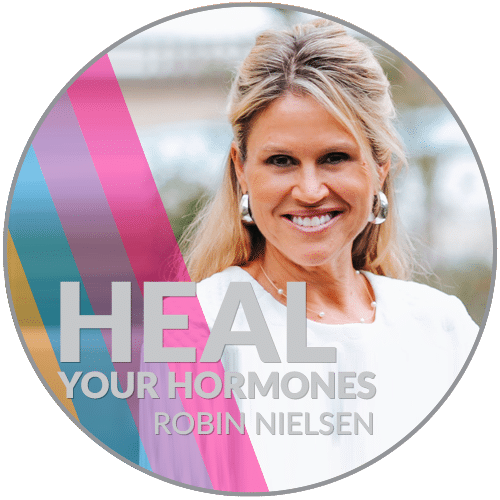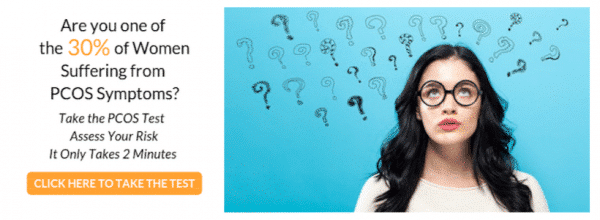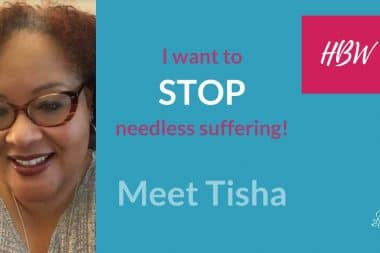There is a lot of misinformation out there about the nature of Polycystic Ovarian Syndrome (PCOS), and it’s important to clarify a few issues surrounding the condition and related symptoms. It’s important, on the one hand, because PCOS (Polycystic Ovarian Syndrome) is so commonplace; with 20% of all women of childbearing age suffering from it, it’s the most prevalent women’s hormonal disease there is. But it’s also important because the symptoms of it can be quite serious, and it’s important to separate this severity from the much more commonplace and less worrisome effects of benign ovarian cysts.
Ovarian Cysts are a common occurrence among women of reproductive age. There are several types of Ovarian Cysts — some are no cause for concern, while others create ovary pain and require treatment. Ironically, women with PCOS (Polycystic Ovarian Syndrome), or PCOD (Polycystic Ovarian Disorder), might not have the characteristic Polycystic Ovaries for which this disorder is named. At other times, they might have other kinds of Ovarian Cysts.
Ovarian cyst symptoms range widely in makeup and degree of seriousness. Some women with Ovarian Cysts do not experience any symptoms. Others suffer from abdominal pain, weight gain, pain during sexual intercourse, breast tenderness, painful menstrual periods, abnormal bleeding, and/or nausea or vomiting. Cysts may bleed, rupture, or twist the ovary, causing significant pain. Symptoms a woman experiences can vary in accordance with the type of cyst she has. Types of Ovarian Cysts include:
- Functional
- Endometriomas
- Cystadenomas
- Dermoid Cysts
- Polycystic Ovaries
Functional Cysts
The most common Ovarian Cysts are functional cysts, which form during a woman’s normal menstrual cycle. Each month, the ovary grows tiny sacs that hold the eggs. After a sac breaks open and releases the egg, the sac normally dissolves. On some occasions, however, the sac doesn’t break open, but continues to grow, or it might release the egg and then fail to dissolve. The resulting growth is a functional cyst. These cysts usually disappear naturally within a few weeks or months. Functional cysts are almost never associated with cancer.
Endometriomas, Cystadenomas, and Dermoid Cysts
Some women experience other, more serious Ovarian Cysts, when they have Polycystic Ovarian Syndrome, such as endometriomas, cystadenomas, and dermoid cysts. Endometriomas develop in women who have endometriosis whereby tissue from the lining of the uterus attaches to an ovary and forms a growth. Other cysts include cystadenomas and dermoid cysts, which develop from cells in the ovary. Cystadenomas are filled with a liquid or a sticky fluid. Dermoid cysts can contain hair, bone, teeth, and cartilage. All of these cysts can become large and painful and usually require removal.
Polycystic Ovaries
Women who suffer from Polycystic Ovarian Syndrome have multiple small cysts located on their ovaries. In a picture of a polycystic ovary, the ovary is larger than normal, with cysts resembling a string of pearls located around the edge. Fertility with Polycystic Ovarian Syndrome is often an issue; sufferers frequently experience difficulty with conception. A causative factor of PCOS is Insulin Resistance, a condition that occurs as a result of the inability of the body’s cells to properly utilize insulin. When Insulin Resistance occurs, your body’s cells begin to be impervious to insulin, which is supposed to allow glucose, blood sugar, to enter and convert into energy. The imbalance of this extra insulin can cause imbalances in other hormones, like androgens (male sex hormones), making levels that are disproportionately high. When this occurs regular functions cease and excess levels of testosterone bring about Polycystic Ovarian Syndrome and other physical changes that are painful, like ovarian cysts.
Detection of Ovarian Cysts
Most women with Ovarian Cysts don’t exhibit symptoms. It’s not until a cyst causes pain in the belly or pelvis that it’s noticed. The pain is often caused by any of the following reasons:
- Quick growth and stretching
- Bursting of the cyst
- Bleeding into the cyst
- Torsion (a twisting of the cyst around its blood supply)
If the cyst has reached a large size, then you might have other symptoms arise as a result of pressure or distortion in your pelvis. These symptoms can include conditions like abdominal fullness or bloating, indigestion, feeling full after eating only a small amount, feeling an urge to defecate or having difficult bowel movements, or painful sexual intercourse.
Your physician can detect the presence of cysts through a routine pelvic exam or an ultrasound, and verify it with a check of hormone levels. If a physician believes more information is needed, in addition to an ultrasound, cysts can also be detected with other imaging methods like a CT scan or MRI scan (magnetic resonance imaging).
The symptoms associated with PCOS (Polycystic Ovarian Syndrome) can be quite numerous, and include infertility, miscarriage, skin conditions, the growth of excess facial and body hair, and more. The sheer number of symptoms that can spring from Polycystic Ovarian Syndrome (PCOS) make it difficult to diagnose, but tracing its root cause proves a bit easier. The underlying condition that tends to cause this disorder is that of Insulin Resistance–essentially, the inability of the body to properly utilize insulin. This inability to properly utilize insulin leads to an entire range of hormonal issues, and can often lead to weight gain.
But a PCOS (Polycystic Ovarian Syndrome) diagnosis is not a hopeless one by any means; while it is impossible to totally prevent the development of ovarian cysts, this hormonal condition is very much reversible. Easier said than done? Maybe, but it’s certainly well within the grasp of any woman suffering from the often maddening symptoms of multiple ovarian cysts or of Insulin Resistance.
The first step toward dealing with this condition is simply to improve your overall health. The best Ovarian Cyst Treatment is actually prevention. Taking good care of your health by eating a nutritious diet, exercising regularly, and taking healthful nutritional supplements is the first line strategy for PCOS and its troubling symptoms. This may seem like a no-brainer, but if it is, it is for a reason; it works, and it’s essential. Women afflicted with PCOS (Polycystic Ovarian Syndrome) are encouraged to increase their level of physical activity, and also to take measures to improve their diet, both by eating foods richer in nutrients and taking in fewer carbohydrates.
The next important step to take is to reach out to Insulite Health. No other company has done as much to further the means by which PCOS (Polycystic Ovarian Syndrome) is reversed. Their system includes exercise and diet but also supplements that will regulate insulin levels and ultimately restore hormonal balance; it is scientifically formulated to treat PCOS. Insulite Health also offers a library of informative articles about the disorder and how it can be dealt with–something that offers women not just a necessary form of education, but ultimately the hope that comes from knowing this disorder, while serious, is imminently reversible.
Insulite Health, a Boulder, Colorado USA based company, is committed to reversing Insulin Resistance – a potentially dangerous imbalance of blood glucose and insulin. Scientific research has revealed that this disorder can be a primary cause of infertility. Insulin Resistance can also underlie the increased risk factors for PCOS (Polycystic Ovarian Syndrome) – a major source of serious diseases as well as cause of excess weight gain, obesity and heartbreaking female infertility.
©Insulite Health, Inc., pcos.com empowers women with PCOS to transform their lives through a process of healing with their PCOS 5-Element System — the worlds only complete solution for helping women heal from the symptoms of PCOS and hormone imbalance.
Still wondering if the symptoms you are suffering with could be PCOS? Click the link below to take the PCOS Quiz and get your PCOS score!
Take The PCOS Quiz HERE!
Next Steps
Becoming victorious over the symptoms of Polycystic Ovary Syndrome is not an easy task, but you can overcome your symptoms to live the life you deserve.
It takes strength, courage, and perseverance. It can be challenging and that’s why Insulite Health created the PCOS 5-Element System. It’s a step-by-step process that will help you balance your hormones and reverse PCOS symptoms using our proprietary 5% Solution.
So take the next steps now! Use the links below to learn how to make the changes that will transform your health and your life forever.
- Read more about PCOS
- Take the PCOS Test and assess your risk!
- Learn more about the Insulite 5-Element PCOS Solution
About Insulite Health PCOS.com
Insulite Health, is committed to helping women reverse their symptoms of hormone imbalance. Scientific research has revealed that this imbalance can be a primary cause of many devastating health symptoms. Hormone Imbalance can also underlie the increased risk factors for PCOS (Polycystic Ovarian Syndrome) – a major source of serious diseases as well as cause of excess weight gain, adult acne, unwanted facial hair, depression, anxiety, and heartbreaking female infertility.
©Insulite Health, Inc., pcos.com empowers women with PCOS to transform their lives through a process of healing with the 5-Element PCOS System — the world’s only complete solution for helping women heal from the symptoms of PCOS and hormone imbalance.










Reply